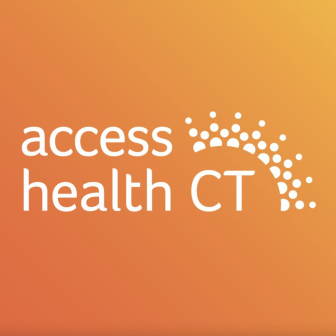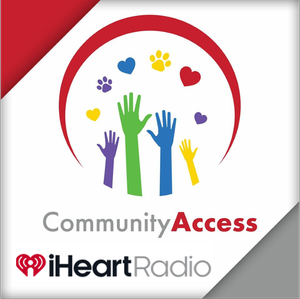Changing Leadership Atop Leading Philanthropy Organizations
/Two leading organizations in Connecticut’s philanthropic community are at the crossroads of leadership changes. The Connecticut Council for Philanthropy (CCP) has announced the end of its national search for a new leader with the selection of Karla Fortunato to be its new president, effective May 1. The Hartford Foundation for Public Giving, one of the nation’s largest community foundations, has embarked on its own national search, and announced that Yvette Meléndez has been appointed interim president, effective March 20, as that search process continues. Fortunato comes to CCP after 13 years at the Health and Environmental Funders Network (HEFN), a national alliance of 60 philanthropic organizations based in Rockville, MD.
 As director of HEFN, she has managed its programming, outreach, and operations, promoting collaboration on shared goals among its members. Fortunato previously served as associate director of policy for Health Care for All in Boston, engaging in policy research, communications, and campaigns, and as a consultant for The Public Policy Institute, also in Boston.
As director of HEFN, she has managed its programming, outreach, and operations, promoting collaboration on shared goals among its members. Fortunato previously served as associate director of policy for Health Care for All in Boston, engaging in policy research, communications, and campaigns, and as a consultant for The Public Policy Institute, also in Boston.
"Karla's experience in building alliances among funders and engaging in public policy outreach make her ideally suited to lead our organization," said Judith Meyers, chair of CCP's Board of Directors. "She is a proven leader with a strong vision of how to mobilize the power of philanthropy to effect positive change--and she has a true passion for the work."
Fortunato graduated magna cum laude from the Randolph-Macon Woman's College in Virginia and earned an MBA (also magna cum laude) from George Washington University. She serves on the Health Leadership Circle of MomentUs, a campaign for climate change solutions. She served as a member of the Serving Communities Committee of the National Conversation on Public Health and Chemical Exposures and as a citizen representative on the Montgome ry County Citizen's Advisory Board. A native of Connecticut, she and her family look forward to relocating here from their current home in Jacksonville, Florida.
ry County Citizen's Advisory Board. A native of Connecticut, she and her family look forward to relocating here from their current home in Jacksonville, Florida.
The Connecticut Council for Philanthropy (CCP) is an association of grantmakers committed to promoting and supporting effective philanthropy for the public good. CCP's 114 members are foundations (private, corporate, community), business and corporate giving programs, bank trusts, donor-advised funds, individual philanthropists and those serving the philanthropic sector. CCP members annually grant more than $858 million from assets of more than $7.6 billion.
Meléndez has served on the Hartford Foundation's board for close to 12 years, the last three as chair. She has more than 30 years of successful managerial experience in state government, higher education and at Hartford Healthcare, from which she is recently retired. She will take a leave of absence from the board during this time, and will serve as interim until a new president is named. Meléndez is not a candidate for the position. Linda J. Kelly announced her retirement as president of the Hartford Foundation for Public Giving, last March, effective next month, after 10 years leading the organization.
is named. Meléndez is not a candidate for the position. Linda J. Kelly announced her retirement as president of the Hartford Foundation for Public Giving, last March, effective next month, after 10 years leading the organization.
The Hartford Foundation for Public Giving is the community foundation for Hartford and 28 surrounding communities. In 2015, the Foundation celebrated ninety years of grantmaking in the Greater Hartford region, made possible by the gifts of generous individuals, families and organizations. It has awarded grants of more than $680 million since its founding in 1925.
PHOTO: Karla Fortunato (left), Yvette Meléndez (right)



 Eligibility Requirements for Book Awards to be made in 2017:
Eligibility Requirements for Book Awards to be made in 2017:


 Unite For Sight's international eye care services with partner local eye clinics are provided year-round and are comprehensive, including examinations by local eye doctors, diagnosis and care for treatable conditions, education, and preventative care. The organization’s website indicates that Unite For Sight has provided eye care services to more than 2.1 million people worldwide, including more than 93,166 sight-restoring surgeries.
Unite For Sight's international eye care services with partner local eye clinics are provided year-round and are comprehensive, including examinations by local eye doctors, diagnosis and care for treatable conditions, education, and preventative care. The organization’s website indicates that Unite For Sight has provided eye care services to more than 2.1 million people worldwide, including more than 93,166 sight-restoring surgeries.
 The conference also includes Social Impact Labs, which provide an opportunity for selected speakers to present their new idea in the format of a 5-minute pitch. All of the presentations are ideas that are being developed, meaning that the ideas are in the brainstorming, early development, or early implementation stage. Following each presenter’s 5-minute pitch, there is a 15-minute period for discussion and coaching with two expert speakers, questions, answers, and feedback from the audience.
The conference also includes Social Impact Labs, which provide an opportunity for selected speakers to present their new idea in the format of a 5-minute pitch. All of the presentations are ideas that are being developed, meaning that the ideas are in the brainstorming, early development, or early implementation stage. Following each presenter’s 5-minute pitch, there is a 15-minute period for discussion and coaching with two expert speakers, questions, answers, and feedback from the audience.



 Lewis’ commitment and dedication impressed the judging panel.
Lewis’ commitment and dedication impressed the judging panel.

 “Wholesome Wave is thrilled by the innovations that USDA is supporting through the new FINI grants, which are taking the work of increasing affordable access to healthy food to even greater levels of impact,” said Michel Nischan, CEO & Founder of Wholesome Wave. “So many SNAP shoppers are working parents with limited time to source healthier food choices. Through the new Farm-to-Grocery model, our partners in Connecticut and Vermont will be able to expand affordable access to SNAP consumers in a way that allows them to find and purchase more healthy food from a variety of retailers.”
“Wholesome Wave is thrilled by the innovations that USDA is supporting through the new FINI grants, which are taking the work of increasing affordable access to healthy food to even greater levels of impact,” said Michel Nischan, CEO & Founder of Wholesome Wave. “So many SNAP shoppers are working parents with limited time to source healthier food choices. Through the new Farm-to-Grocery model, our partners in Connecticut and Vermont will be able to expand affordable access to SNAP consumers in a way that allows them to find and purchase more healthy food from a variety of retailers.”

 The Foundation invested 30 percent of its grants in education from birth through high school, and new and renewed college scholarship, according to the report. Grants for family and social services received 20 percent; health – 11 percent; arts and culture – 11 percent; community and economic development – 19 percent, general – 5 percent and summer programs – 4 percent.
The Foundation invested 30 percent of its grants in education from birth through high school, and new and renewed college scholarship, according to the report. Grants for family and social services received 20 percent; health – 11 percent; arts and culture – 11 percent; community and economic development – 19 percent, general – 5 percent and summer programs – 4 percent.
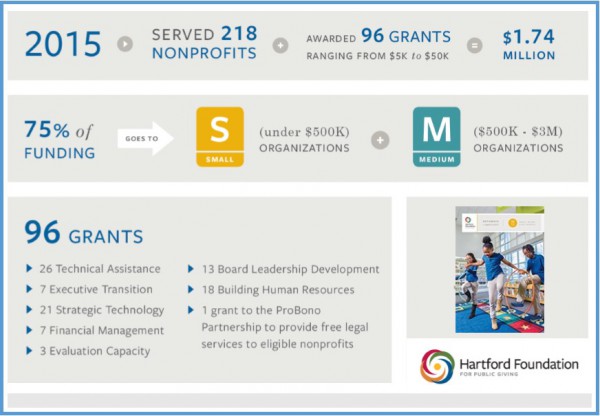
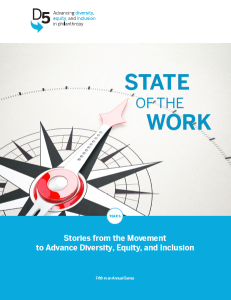
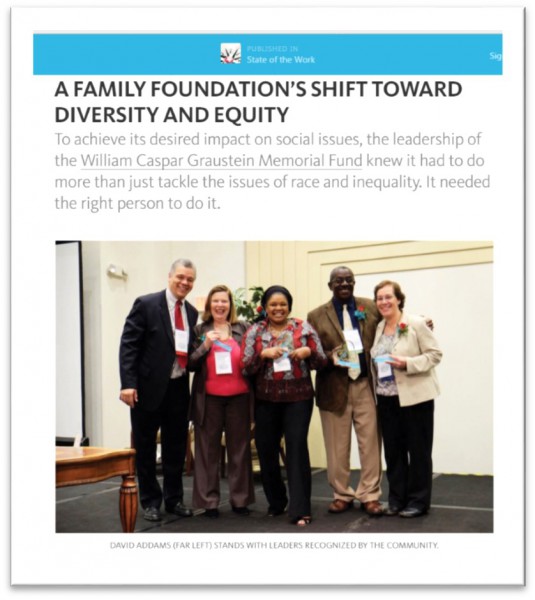 The D5 final report features stories about leaders in foundations and other philanthropic organizations taking meaningful action to advance DEI. “Storytelling is one of the most powerful ways to inspire action and change. We hope people working within foundations—whether they are a CEO, an HR manager or a program officer—draw on the important lessons from these stories, and apply them to their own unique situations,” said Kelly Brown, D5 Director. Kelly also cited statistics indicating that “when companies commit themselves to diverse leadership, they are more successful. Foundations and nonprofits,” she said, “have the opportunity to take a page from successful business playbooks.”
The D5 final report features stories about leaders in foundations and other philanthropic organizations taking meaningful action to advance DEI. “Storytelling is one of the most powerful ways to inspire action and change. We hope people working within foundations—whether they are a CEO, an HR manager or a program officer—draw on the important lessons from these stories, and apply them to their own unique situations,” said Kelly Brown, D5 Director. Kelly also cited statistics indicating that “when companies commit themselves to diverse leadership, they are more successful. Foundations and nonprofits,” she said, “have the opportunity to take a page from successful business playbooks.”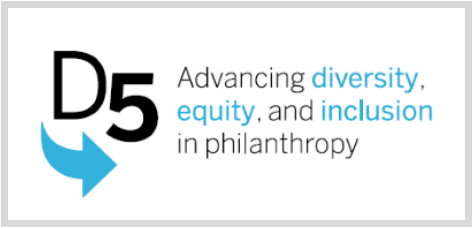
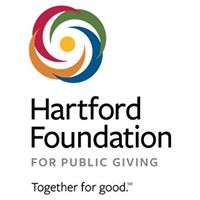
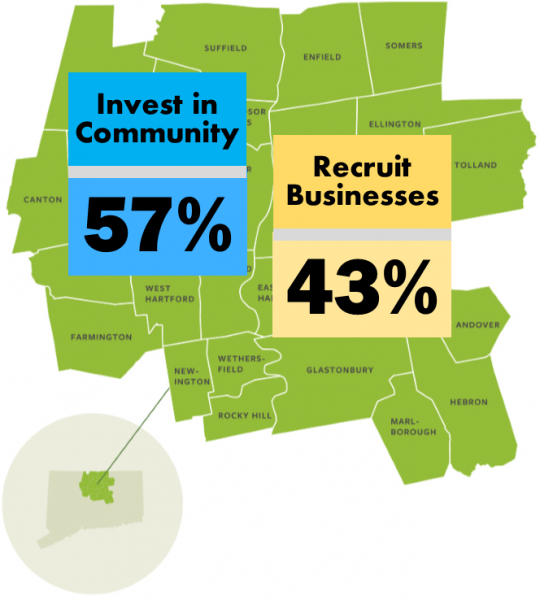 The data from the survey reflect a difference of opinion among older residents of the region. Individuals over age 46 took the opposite view from younger residents, with a majority expressing a preference for spending skewed toward recruiting companies. The reversal was dramatic, with two-thirds of those age 36-45 preferring investing in communities, by a margin of 67%-33%, and individuals age 46-55 expressing a preference for resources to be aimed at recruiting companies, with two-thirds holding the opposite view, 63%-38%.
The data from the survey reflect a difference of opinion among older residents of the region. Individuals over age 46 took the opposite view from younger residents, with a majority expressing a preference for spending skewed toward recruiting companies. The reversal was dramatic, with two-thirds of those age 36-45 preferring investing in communities, by a margin of 67%-33%, and individuals age 46-55 expressing a preference for resources to be aimed at recruiting companies, with two-thirds holding the opposite view, 63%-38%.




